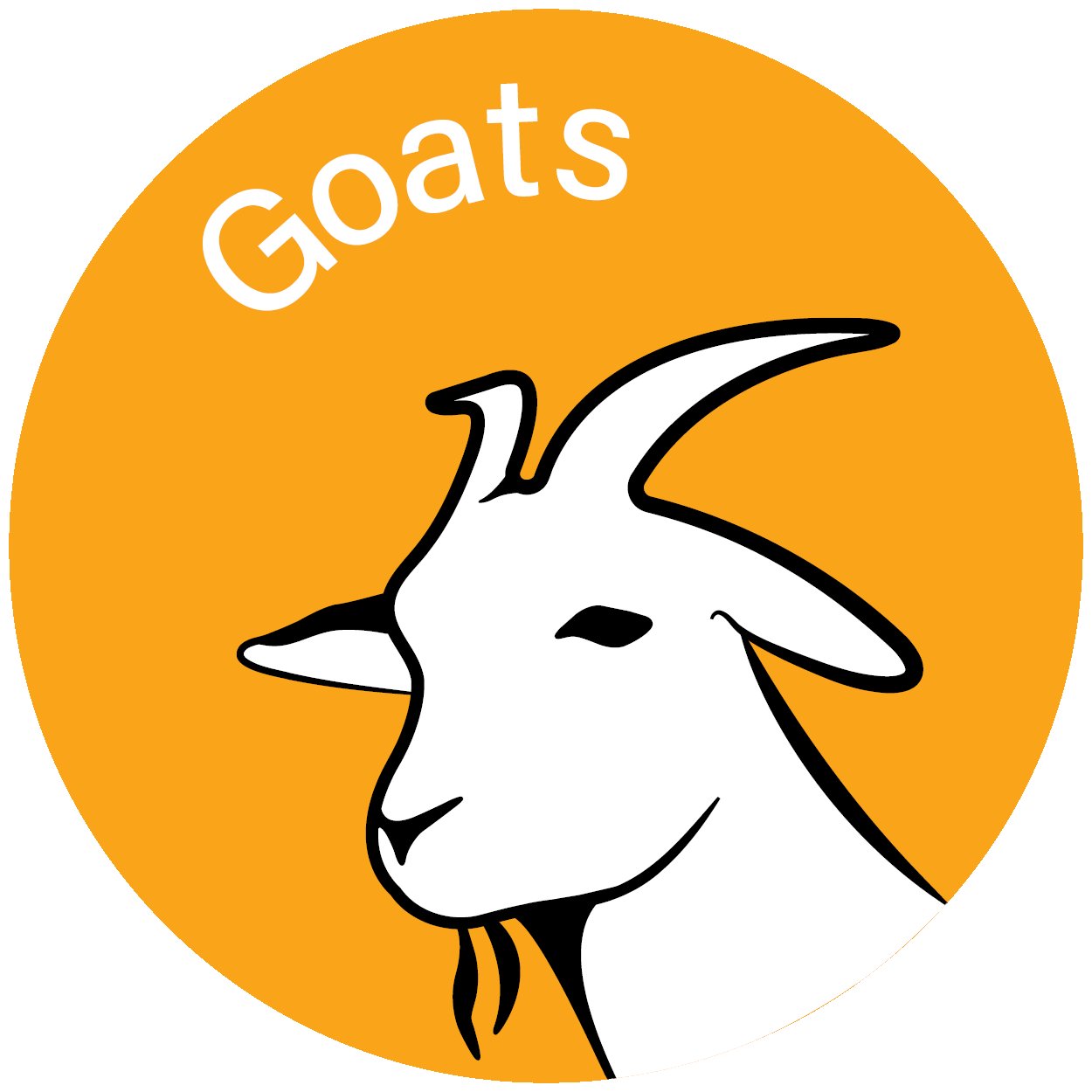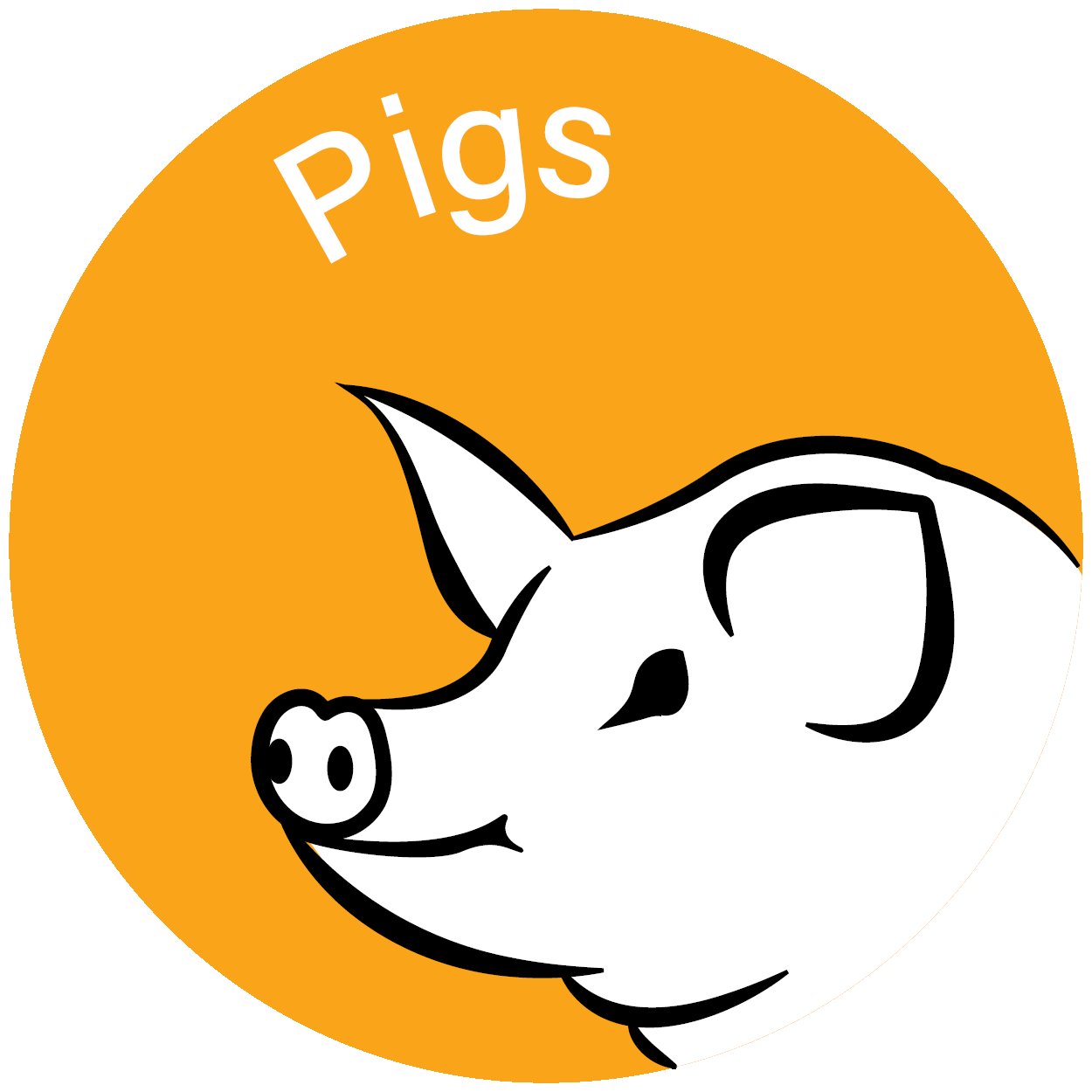Keeping Livestock on Your Block
Raising farm livestock and having stock sense refers to the understanding and knowledge of managing and caring for livestock animals on a farm. It requires a passion for working with animals and involves various aspects such as breeding, feeding, housing, healthcare, and overall management practices to ensure the well-being and productivity of the animals. Here's a breakdown of keeping medium to large livestock, and what animal stock sense entails:
Breeding

Understanding the principles of animal breeding to produce offspring with desirable traits such as productivity, disease resistance, and adaptability to the environment. This involves knowledge of genetics, mating systems, and selection criteria.
Feeding

Knowing the nutritional requirements of different livestock species and stages of life (e.g., growth, reproduction, lactation) and formulating appropriate diets. This includes understanding the nutritional content of various feed ingredients, as well as factors affecting feed intake and digestion.
Housing and Facilities

Designing and maintaining suitable housing and facilities for livestock to ensure their comfort, safety, and health. This includes considerations such as ventilation, temperature control, space requirements, and waste management.
Healthcare

Recognizing signs of illness and implementing preventive measures to maintain the health of the animals. This involves vaccinations, parasite control, routine health checks, and prompt treatment of injuries or illnesses.
Reproduction Management

Managing reproductive processes such as estrus synchronization, artificial insemination, pregnancy diagnosis, and parturition assistance. This ensures optimal reproductive performance and genetic improvement of the herd or flock.
Economics and Record Keeping

Understanding market trends, pricing, and marketing strategies for livestock products such as meat, milk, eggs, and wool. Maintaining accurate records of animal health, reproduction, production (e.g., milk yield, weight gain), and management practices. This data helps in making informed decisions and monitoring the performance and profitability of the farm.
Hands-on Experience
Gain practical experience by working on farms, internships, or volunteering with livestock producers. Direct exposure to daily farm operations and tasks helps in developing practical skills and understanding the nuances of animal management.
Adaptation
Be willing to experiment with new techniques, technologies, and management practices on the farm while being attentive to the specific needs and characteristics of the livestock and the local environment.
We design and build a range of Timber Housing, constructed in a kitset form for economical freight. Easy to re-assemble. Shipped anywhere in New Zealand.
We design and build a range of Timber Housing, constructed in a kitset form for economical freight. Easy to re-assemble. Shipped anywhere in New Zealand.
Swipe for more

No matter the scale, farming isn't just about tilling soil or raising livestock; it's an art, a science, and a way of life. At the heart of successful livestock farming lies an intangible quality known as "stock sense." This innate ability enables experienced farmers to connect deeply with their animals, fostering an environment of mutual understanding and trust. A seasoned farmer can wander through a flock of sheep or herd of cattle and instinctively discern when something isn't right. It's as if they possess a sixth sense, picking up on subtle cues in behavior or stance that signal potential issues.


So what exactly is stock sense, and how does one develop it?
Stock sense is a blend of observation, intuition, and practical knowledge gained through spending time with your livestock and building years of hands-on experience. It's the ability to read animal behavior like a book, understanding their needs, moods, and potential health issues without the need for elaborate diagnostics.
Furthermore, learning and implementing best practices are essential for cultivating stock sense. This involves staying informed about the latest advancements in animal husbandry, veterinary care, and agricultural techniques. It means attending workshops, seeking advice from fellow farmers, and continuously refining one's personal skills through trial and error.
Experienced farmers work with their animals, not against them. They understand that animals have their own instincts and communication methods, and they respect these by creating an environment that allows natural behaviors to flourish. This means providing ample space, proper nutrition, and a calm, stress-free atmosphere.
Central to developing stock sense is maintaining a sense of calm and patience. Anger has no place in the world of farming. Animals are highly attuned to human emotions, and any display of anger or frustration can disrupt the delicate balance of trust that farmers work hard to establish. Instead, farmers approach their livestock with patience, understanding, and a gentle hand.
You will find animals tolerate you at a certain distance. Any closer and they feel threatened so go slowly until you work out how much pressure you need to apply to get them to move, then apply it gradually. Push too fast and they will scatter. Once they are moving without panic, you will have time to guide them left or right. It goes without saying that a good fence layout and a calm approach helps tremendously.


If you are running goats, pigs or horses then learning to work with their nature takes a different form, as most will sell their soul for food! Goats far prefer to be led to a new paddock than chased. Once they discover that you dish out goat pellets occasionally, they will soon learn to come when called. Likewise with horses. Who wants to chase the horse around the paddock when it will come galloping up eagerly for treats? Pigs take a bit more handling to shift but run a trail of food where you want them to go, or lead them into a new pen with their slops bucket.
But perhaps most importantly, developing stock sense requires a genuine love and respect for the animals in one's care. Farming is more than just a livelihood; it's a bond forged between humans and animals, rooted in a shared journey of survival and growth. Farmers who truly care about their livestock are more likely to develop the keen intuition and empathy that characterize stock sense.
In conclusion, developing stock sense is essential for any farmer looking to succeed in the challenging yet rewarding world of agriculture. It's about more than just knowing how to care for animals; it's about forming a deep, intuitive connection that transcends words and actions. By working with their animals, staying calm, and continuously striving to learn and improve, farmers can cultivate the stock sense needed to thrive in an ever-changing agricultural landscape.



